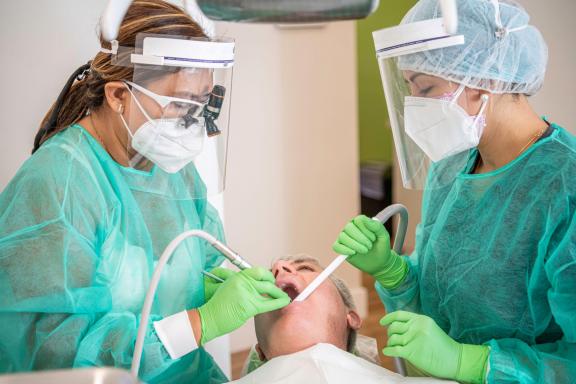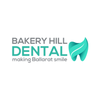Today we will learn about five important points about oral health that we should keep in mind. The significance of oral health services in maintaining good oral hygiene is very crucial.
Taking care of your mouth, teeth, and gums is a healthy lifestyle habit that may improve your overall health.
Oral and dental hygiene may help prevent bad breath, tooth decay, and gum disease, as well as help you preserve your teeth as you age. It has been demonstrated that proper dental hygiene and eating habits are critical to obtaining and sustaining total physical and emotional well-being throughout life.
Oral health may have an influence on both your physical and emotional well-being by influencing your appearance, interpersonal relationships, food, nutrition, and speech. Furthermore, a mouth ailment can impact the rest of the body and contribute to a variety of secondary disorders.
Bakery Hill Dental Care is a great believer in the need to publicize and promote dental health. To do this, we have partnered with the Mouth Healthy Organization.
How can you enhance your dental health?
Regular dental appointments may tell dentists a lot about your overall health, including whether or not you are at risk of chronic illness, in addition to keeping your smile appealing.
According to a new study, the health of your tongue reflects the overall health of your body. For example, a healthy mouth is an indicator of generally excellent health. However, if you have poor dental health, you may have additional health issues.
You may practice proper dental hygiene at home by doing the following:
- Brush for at least two minutes twice a day.
- Floss on a daily basis to eliminate plaque from areas where your toothbrush cannot reach.
- Eat a balanced diet to get the nutrients you need (especially vitamins A and C) to avoid gum disease.
- Avoid smoking and using smokeless tobacco, which has been linked to gum disease and oral cancer.
- Schedule regular dental cleanings and examinations. One of the most efficient methods for detecting early indications of gum disease.
Role Of Oral Health Specialists:
Oral health specialists are vital in maintaining and promoting oral health, a vital aspect of overall well-being. They are highly trained and specialized in diagnosing and treating various oral health conditions.
Their primary roles include preventive care, diagnosis, treatment planning, and specialized care in various oral health disciplines.
Preventive care involves educating patients about oral hygiene practices and performing routine dental check-ups. Diagnostic tools like X-rays, dental examinations, and medical histories are used to assess patients' oral health. Treatment plans are developed based on the diagnosis, which may include restorative procedures, periodontal treatments, and extractions for severely damaged teeth.
Orthodontic care focuses on correcting misaligned teeth and jaws, while oral surgery involves surgical procedures related to the mouth, face, and jaws.
Pediatric dentistry focuses on providing oral care to children and teenagers, while endodontic care focuses on treating issues related to the dental pulp and root canals.
Periodontists focus on the health of the gums and supporting structures of the teeth, diagnosing and treating gum diseases, performing gum surgeries, and providing guidance on maintaining optimal gum health.
Prosthodontic services restore and replace missing teeth through the creation and fitting of dental prostheses.
Oral health specialists also educate patients on oral health maintenance and disease prevention, offering guidance on proper oral hygiene practices and lifestyle choices.
Seven Ways to Protect Your Oral Health:
-
Brush Your Teeth: Brush at least twice a day with fluoride toothpaste to remove plaque and prevent tooth decay.
-
Floss Daily: Flossing helps remove food particles and plaque from between teeth and along the gumline.
-
Limit Sugary Foods: Reduce your intake of sugary snacks and drinks, as they contribute to cavities.
-
Stay Hydrated: Drinking water helps rinse away food debris and maintains saliva production, which is essential for oral health.
-
Regular Dental Visits: Schedule check-ups and cleanings with your dentist every six months.
-
Avoid Tobacco: Smoking and tobacco use increase the risk of gum disease and oral cancer.
-
Protect Your Teeth: Wear mouthguards for sports, and avoid using your teeth to open packages or bite hard objects.
Good, Fair, and Poor Oral Hygiene:
What does this mean-
-
Good:
Good oral hygiene involves regular brushing, flossing, and dental check-ups, resulting in healthy teeth and gums.
-
Fair:
Fair oral hygiene may include inconsistent dental care, leading to occasional issues like mild gingivitis or cavities.
-
Poor:
Poor oral hygiene involves neglecting dental care, leading to severe problems such as advanced gum disease, tooth decay, and chronic bad breath.
Reversing Poor Oral Hygiene:
Improving oral hygiene habits is essential to reverse its effects. Start by brushing and flossing diligently, and consult your dentist for a treatment plan that may include deep cleanings or restorative procedures.
The WayForword:
In a nutshell, in cases of dental emergencies, oral health specialist/s provide immediate care and relief from pain. Collaboration with other healthcare professionals ensures comprehensive patient care, recognizing the interconnectedness of oral health with overall health and well-being.


No comments yet